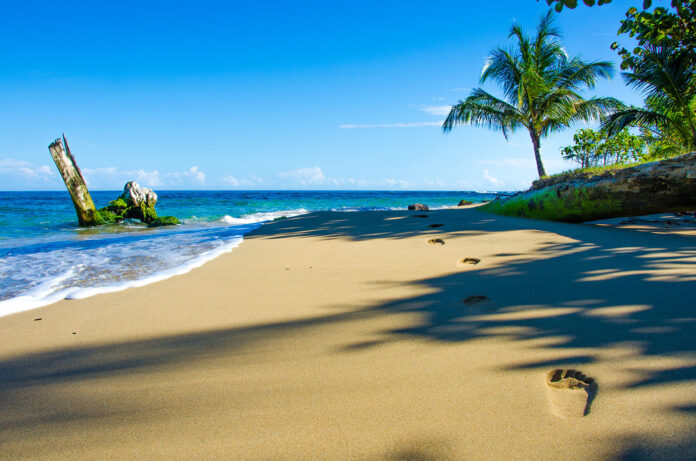If you, like me, fantasize about retiring on a beach where life is easy and the waves are always good, you probably are very familiar with Costa Rica. The Central American country is bordered by two spectacular bodies of water: the Caribbean Sea to the east and the Pacific Ocean to the west. Nicaragua is due north, and to the south lies Panama, the country linking Central America to North America. Within its 19,710 square miles, Costa Rica boasts an amazing biodiversity of plants and creatures and a human population of about 5 million. It also has a very-well-balanced gross domestic product, thanks to its stable and long-standing democracy.
These attributes and many more reinforce Costa Rica’s excellent potential for being more than just a retirement destination for old Californian surfers.
Unconventional policies
Like other Latin American countries, Costa Rica’s cannabis policy has been unconventional by Western standards. Although the country didn’t join the global push for cracking down on illicit drugs in the 1930s and ’40s, things changed in the early 1960s when the General Health Law and the Narcotics and Psychotropic Substances Law (Law 8204) were enacted. The shift is tied to the country’s relationship with the United Nations, particularly the international organization’s influence on drug regulations and ideologies. The General Health Law prohibits planting, cultivation, import/export, and trafficking drugs in general, while the narcotics law defines the crimes and penalties—albeit in vague terms.
As in Colombia’s case, Costa Rica’s government had an interesting relationship with United States authorities when it came to narcotics. Historically, and still to this day, several illicit drugs are trafficked up the Pacific coast, prompting a treaty between the U.S. and Costa Rica to engage in “joint patrols” involving the latter’s military and the U.S. Coast Guard. The treaty allowed American warships and soldiers to dock and disembark at Costa Rican ports in the name of the war on drugs.
Soon after former President Laura Chinchilla Miranda took office in 2010, the country changed how it approached and policed all narcotics. Chinchilla created an entirely new position to focus on the effort: the National Anti-Drugs Commissioner, who was tasked with promoting compliance among state policies, programs, projects, and regulations pertaining to the prevention of drug use. The role also oversaw treatment programs for citizens with drug addictions and prosecution of those with illicit ties to terrorism, organized crime, and money laundering.
Possession laws
Costa Rica further solidified its new tone regarding “simple, non-criminal possession of drugs” in 2010 by way of a circular issued by the Public Prosecutor’s Office, which communicated the legal justification for why people no longer would be jailed for non-criminal possession. While the country didn’t go as far as decriminalizing “recreational drugs,” as Portugal did at the same time, the circular alerted the people of Costa Rica that the judicial arm of the government had changed its position. Another big step on President Chinchilla’s watch was a partial reform of the narcotics law.
In the past several years, Costa Rica has joined other countries in the region in open dialogue about the need to further reform current ideologies and strategies regarding drugs. Costa Rica already embraces a different stance from some other Latin American countries due to reform efforts over the past decade. Today, prohibition on possession of small amounts of illicit substances for personal use is not enforced, but there is widespread debate about what’s considered “small amounts.” The general consensus seems to fall between one and eight grams; the amount varies between agencies. Authorities typically confiscate contraband and send offenders on their way, but possession of more than a quarter-ounce could result in arrest even if past sentences for possession of up to 200 grams (about seven ounces) have been overturned in recent years.
Where does Costa Rica’s cannabis policy stand from an international perspective? The United Nations Office on Drugs and Crime cited the country’s approach as an example of good practice in drug legislation, stating, “It is also important to highlight the reform of Article 77 of Law 8204 adopted by Costa Rica. … This reform represents good practice, not just because it includes the gender perspective but also because it does not establish a minimum sentence for these crimes.”
Future potential
Over the past few years, Costa Rica has seen phenomenal progress in recognizing a shift toward cannabis acceptance, primarily because of the substance’s medicinal attributes. Cannabis research in the country is not subject to as much red tape as in the U.S., opening the door to what now is commonly known as “law project 21.388.”
The Legislative Assembly of Costa Rica approved legalization of medical cannabis in October 2021. Conservatives, including President Carlos Alvarado Quesada, opposed the legislation, fearing it would open the door to recreational legalization. Nevertheless, Alvarado signed the bill in November, establishing a foundation for economic opportunity.
Several American companies have been working with the Ministry of Agriculture to prepare the framework for a legal medical market, which could prove advantageous for early North American entrants with experience in cultivation, extraction, and manufacturing. Companies in other Latin American countries began exporting extract and dried flower to Germany in 2019, and with the European market poised to become a major consumer of medicinal cannabis products, the opportunities are almost limitless.

Lance C. Lambert has spent years cultivating brands and telling stories, primarily in the mainstream digital media and marketing space prior to making the jump to the legal cannabis industry in late 2013. In 2021, he planted his knowledge and passion-first attitude at GreenBroz, where he’s tasked with growing the company’s footprint at home and in emerging markets around the globe.










